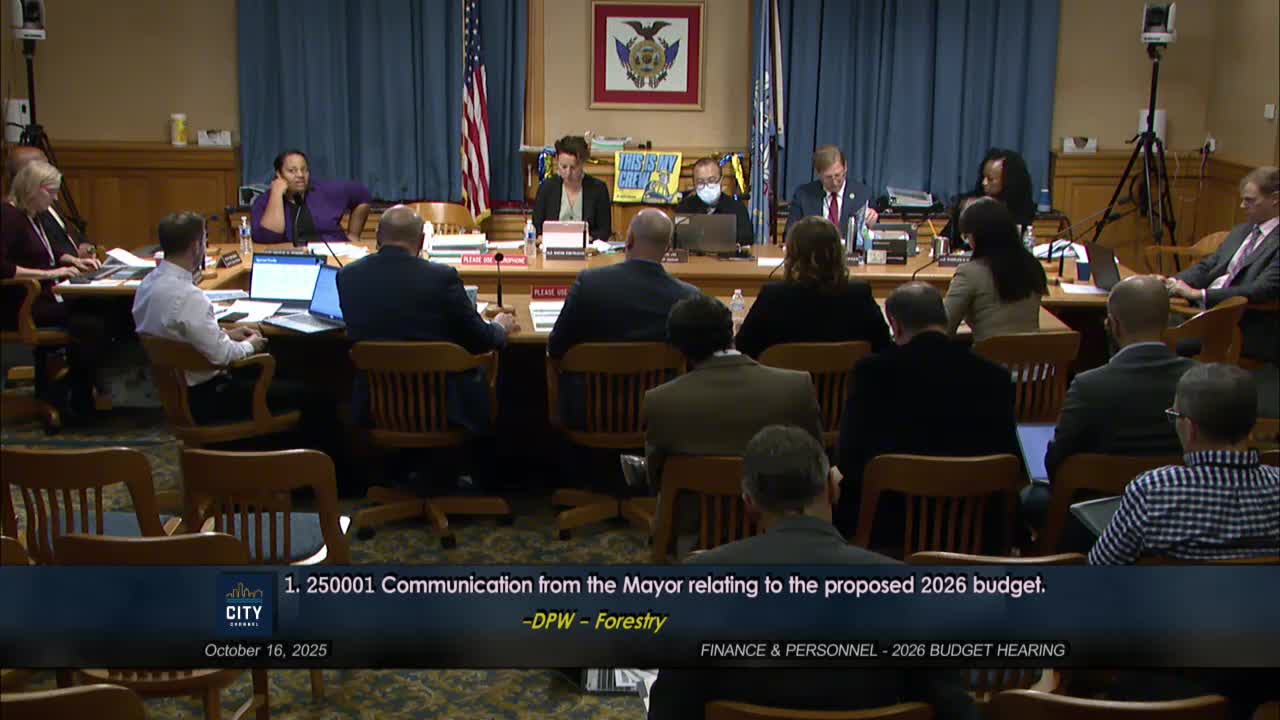Transportation fund under pressure as parking revenue projections fall; streetcar deficit fuels council debate
Get AI-powered insights, summaries, and transcripts
Subscribe
Summary
Budget staff warned the transportation fund's unrestricted cash position has fallen and recommended no transfer to the general fund for 2026; the presentation prompted a wide council debate about parking enforcement revenue, towing accounts, and the streetcar's multi-million-dollar operating shortfall and expansion prospects.
Budget analysts told the committee Oct. 16 that the Transportation Fund's unrestricted balance has declined in recent years and that the fund is not in a position to transfer money to the general fund in 2026. Sarah Osborne of the Budget and Fiscal Policy group showed long-run fund data that combined unrestricted cash and net investment in capital assets; the analysis found that unrestricted funds had declined to an effective negative level at year-end 2024 and that the city has advanced about $32.1 million from the general fund as a working balance.
Osborne and DPW leaders explained that some revenue assumptions used earlier in the budget process had been based on proposed policy changes (meter-time expansions, fee updates). In several cases the comptroller and budget office have applied a more conservative approach to revenue recognition and used year-to-date trends for 2025 to estimate 2026 projections.
Parking services manager Peter Knox detailed operational changes and technology pilots aimed at increasing revenue and compliance: expanding meter hours in phases downtown, piloting online payments for towing and citations, and testing automated tow dispatching to shorten on-scene time and streamline tow requests for police and tow vendors. Knox also described a plan to increase auxiliary parking enforcement officer (PEO) authority to train larger classes and noted vacancy pressures in the PEO workforce. Committee members asked for data tying citation issuance to collection rates; DPW staff advised that about 71.5% of citations issued in 2024 were paid and that older citations can be collected in later years.
The Transportation Fund discussion turned to the Milwaukee Streetcar: the mayor's budget carries a projected streetcar operating deficit (about $4 million in 2026) and members engaged in a lengthy debate on the merits and financing of the two-mile streetcar loop. Streetcar manager James Vinod presented ridership data and noted opportunities to boost revenue through sponsorship and advertising; department and budget staff warned that a federal grant that helped build the system could carry a recoupment obligation if the city were to shut down the streetcar, and DPW estimated a potential claw-back in the tens of millions of dollars (a generic estimate cited by staff was approximately $48 million) depending on depreciation and grant terms.
Councilmembers asked for follow-up information: detailed vendor receivable balances for towing and enforcement, a historical record of meter and citation revenues versus budget, telematics and salt usage metrics for snow operations, and an analysis of the streetcar's economic impact on assessed values and tax revenues along its corridor. Budget staff and DPW agreed to provide the requested datasets and analyses for upcoming budget committee sessions.
The committee took no final vote; the mayor's transportation fund and related fee proposals will proceed to the council and be available for amendment during the fall budget cycle.
